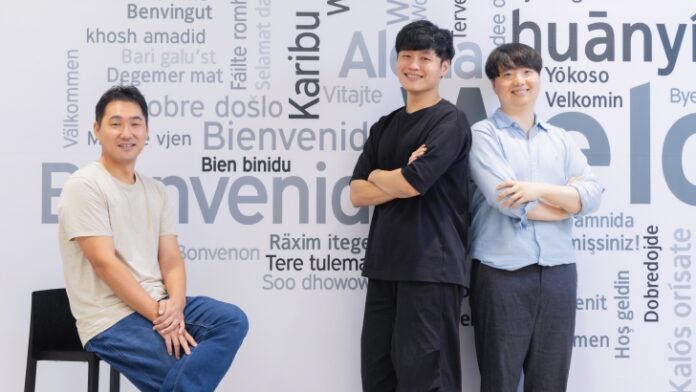On August 8 in Las Vegas, the air was heavy with a tense silence. It was the long-awaited moment the winner of the world’s largest security technology competition — the AI Cyber Challenge (AIxCC) — would be revealed.
All eyes were fixed on the screen, set to announce the champion. Then, when the Team Atlanta logo appeared, the silence erupted into thunderous cheers and applause. It was the culmination of two years of relentless effort and determination, which had resulted in the team rising above world-class competitors to win the first-place prize of $4 million.
▲ Team Atlanta wins first place at the AI Cyber Challenge.
To take readers behind the scenes of their inspiring journey, Samsung Newsroom sat down with Taesoo Kim, Corporate Vice President, and Joonun Jang from Samsung Research’s Security & Privacy Team, along with Yunjae Choi from the AI Productivity Team.
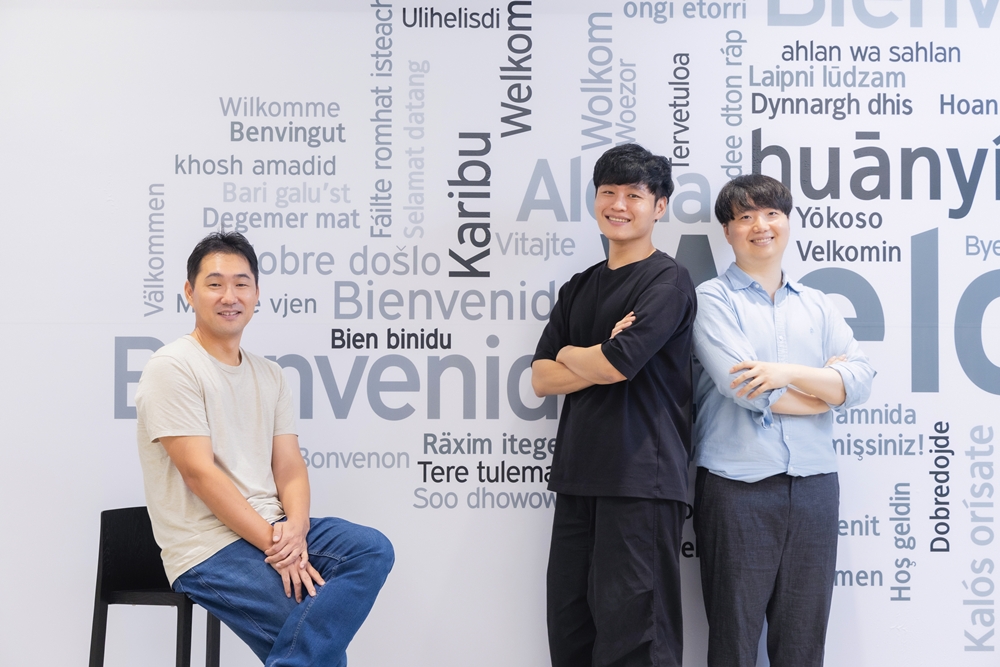
▲ (From left) Taesoo Kim, Joonun Jang and Yunjae Choi from Samsung Research
Team Atlanta: A 40-Strong Global Alliance of Top Researchers, Engineers and Hackers
The AI Cyber Challenge is a global security technology competition hosted by the U.S. Defense Advanced Research Projects Agency (DARPA). Sponsored by leading tech companies including Google, Microsoft and OpenAI, the latest edition of the event featured a total prize pool of $22.5 million. At this event, Team Atlanta — a coalition of more than 40 world-class security researchers from Samsung Research, the Georgia Institute of Technology, KAIST, POSTECH and other leading institutions — came together under the leadership of Taesoo Kim, who also played a pivotal role in assembling the team.
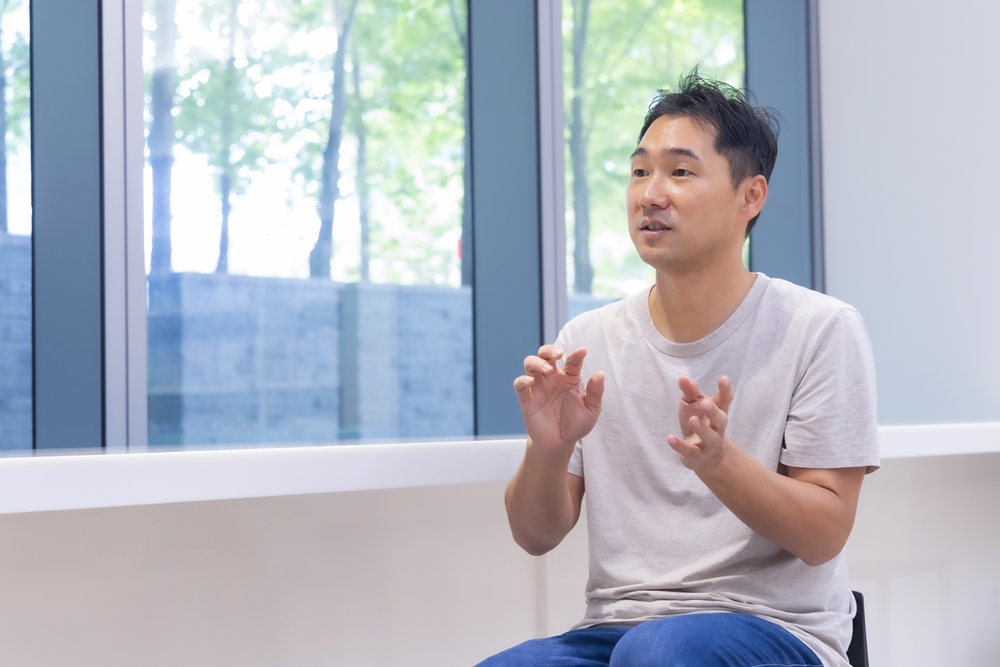
▲ Taesoo Kim explains what inspired the team to take on the challenge.
Also a professor at the Georgia Institute of Technology, Kim reached out to several of his former Ph.D. students after first learning about the AI Cyber Challenge and encouraged them to join. They soon became the core members of Team Atlanta.
Under Kim’s leadership, Team Atlanta brought together talent from across Korea and both the East and West Coasts of the United States. “Because our members came from such diverse locations, we structured our collaboration framework around each member’s base,” he recalled. “Some of our colleagues in Korea even carved out time from their busy schedules to travel to the Georgia Institute of Technology so we could work side by side.”
How Team Atlanta Outpaced the Competition
The AI Cyber Challenge is a competition designed to test the ability to identify and remediate vulnerabilities in large-scale software systems. Its ultimate aim is to accelerate the development of AI-powered security technologies capable of protecting critical infrastructure such as transportation, energy and healthcare. In the final round, participants were tasked with building an AI-driven “Cyber Reasoning System (CRS)” capable of autonomously detecting software vulnerabilities and generating security patches.
Scoring was mainly based on two components: vulnerability discovery and program repair. Teams earned discovery points for accurately identifying weaknesses in the given code, and repair points for successfully patching them. In short, a team’s score reflected how quickly its system could detect vulnerabilities in the organizer’s source code, how many it could detect and how accurately it could fix them.
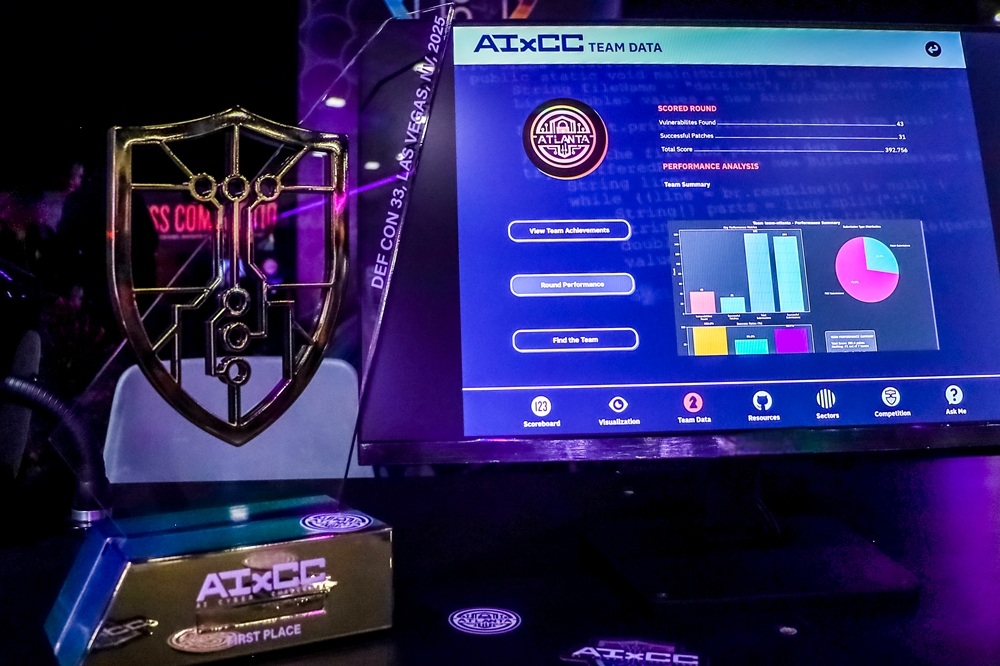
▲ The first-place trophy and Team Atlanta’s winning scorecard
Team Atlanta clinched the championship with a decisive lead, uncovering more vulnerabilities and patching them with better accuracy than their competitors.
Jang, who oversaw the development of a large language model (LLM) agent for detecting vulnerabilities in Java programs, explained that the agent helped Team Atlanta’s system detect more vulnerabilities during the competition. “Team members each developed their agents in various ways, and by bringing them together, we were able to build a system capable of covering a wide range of weaknesses,” he said.
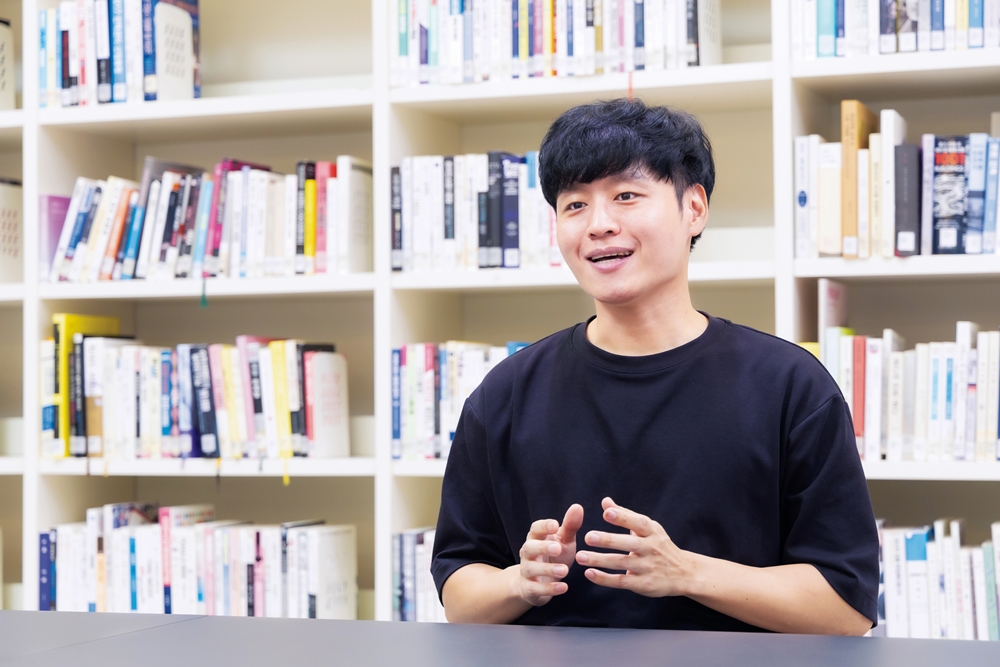
▲ Joonun Jang explains the LLM agent Team Atlanta developed for detecting vulnerabilities in Java programs.
Choi, meanwhile, was in charge of developing AI agents that automatically patch vulnerabilities once they are identified. “Since AI was a common tool provided to all participants, true technological excellence lay in how effectively we could harness it,” he noted. “The key challenge was creating AI agents flexible enough to respond to newly discovered vulnerabilities.”
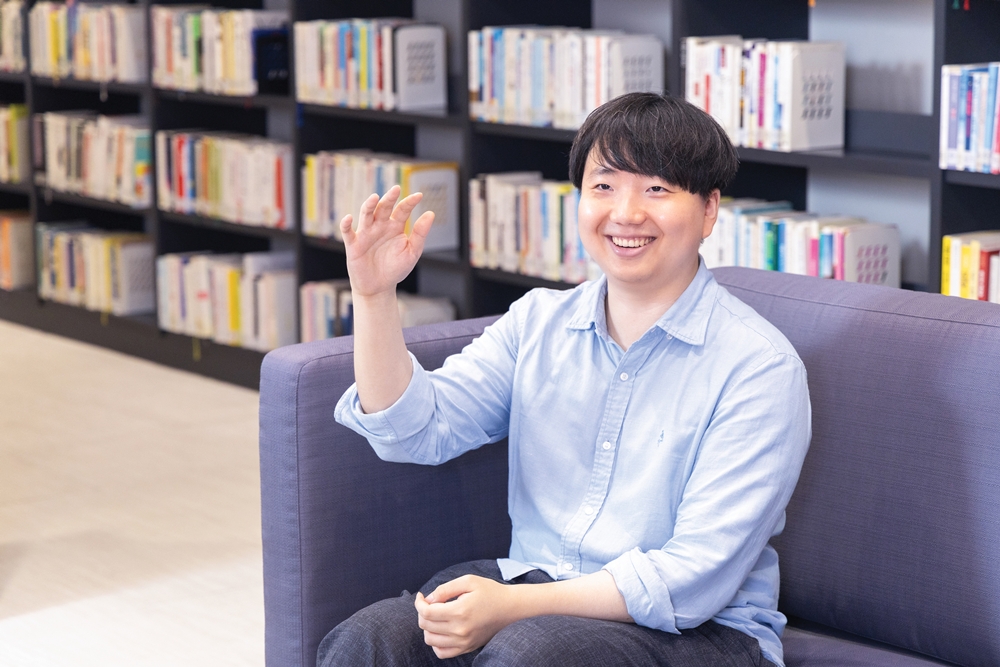
▲ Yunjae Choi explains the AI agents Team Atlanta developed to automatically patch vulnerabilities.
When Seconds Feel Like Eternity
On August 8, the seven finalists gathered in Las Vegas for the final announcement — the culmination of two years of effort. As the world’s largest cybersecurity competition, the event brought together top teams from around the globe, all waiting in tense anticipation. When the third- and second-place winners were revealed, Team Atlanta’s name had still not been called.
“Given how many outstanding teams were competing, I thought that even placing in the top three would have been a great achievement,” said Jang. “So in those moments before the first-place announcement, I was worried but cautiously hopeful at the same time.”
When Team Atlanta’s logo finally appeared on the screen confirming their victory, the audience erupted. “We had only dared to hope, but when we were actually named first place, it was as if the whole team had suddenly found ourselves in the middle of a festival,” said Choi.
“The two years of preparation felt like the shortest time of my life, while the one hour spent waiting for the results felt like the longest,” Kim reflected.
▲ The moment Team Atlanta was announced as the winner of the 2025 AI Cyber Challenge
“I suddenly became emotional when I remembered how, just before the final submission deadline, we had discovered a critical bug in the system we had submitted early to stay ahead of schedule. We worked frantically until the very last minute. I even had to wake the entire team up at 5 a.m. to fix the problem. Just thinking about it still gives me chills,” he added.
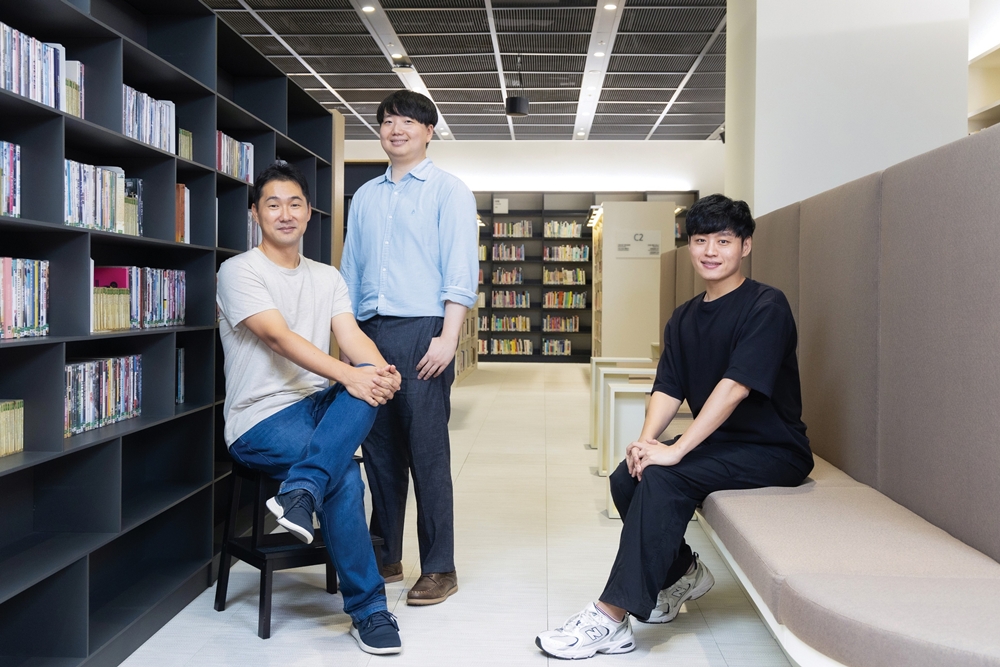
▲ (From left) Taesoo Kim, Yunjae Choi and Joonun Jang,
Samsung’s Vision for the Future of AI Security
With its victory at the AI Cyber Challenge, Samsung has once again underscored its technological leadership and global competitiveness in AI security. Going forward, the company plans to further advance next-generation AI security solutions so that they become increasingly capable of autonomously identifying and addressing vulnerabilities.
“Samsung’s AI security technologies are already being applied to strengthen the protection of products and services, including Galaxy devices and AI TVs,” said Kim. “Through continued open-source contributions and active community engagement, we aim to solidify our position as a global leader in AI security.”

